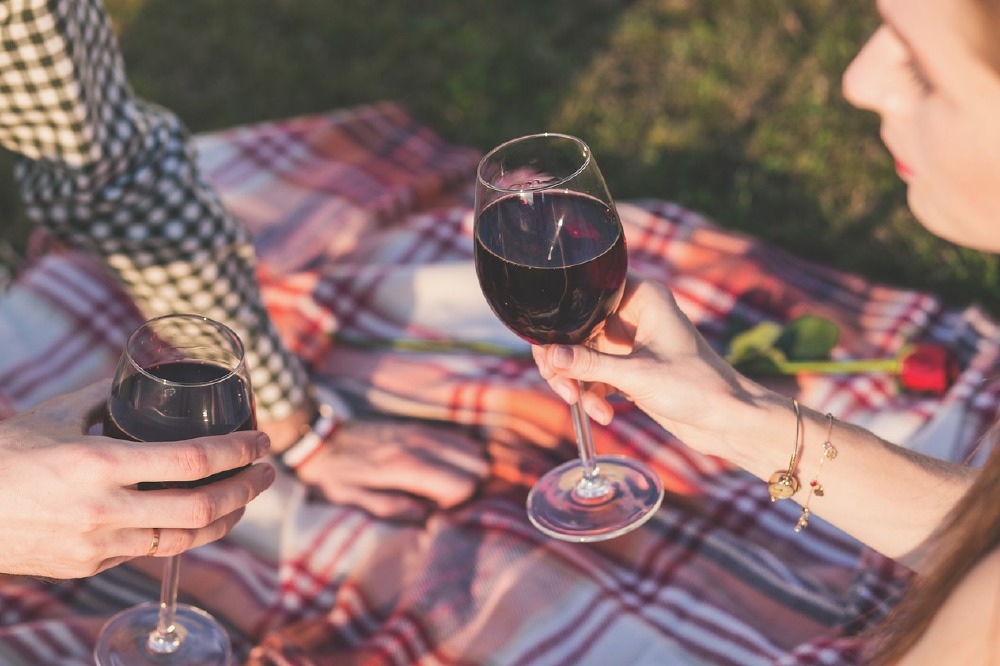It is summer, which spells late nights spent in beer gardens enjoying the company of our loved ones, but on the odd occasion that good times turn bad due to the freely flowing alcohol, it can have a damaging effect on your relationships.

Don't Let Alcohol Destroy Your Relationship
The charity Drinkaware has teamed up with Psychologist Emma Kenny to bring you some tips on how you can avoid good times turning bad and how to keep your relationships on track when alcohol is involved.
Emma explains that alcohol can change our perceptions, leading to trouble.
She says, “Alcohol changes our physical, emotional and psychological perception, this means we are more likely to blow minor tiffs into major confrontations.
“We lose sight of the big picture and react with immediacy. Lots of relationships become permanently damaged due to alcohol. It’s all too common to hear stories about people becoming involved in arguments, doing something they regret to their partners, or with someone else, as a result of drinking to excess.”
Emma says that there are warning signs that alcohol is having a negative effect on a relationship, one of these is paranoia and jealously.
Emma says, “Jealousy and paranoia are common features when people are drinking. If you are insecure in your relationship, it’s essential to recognise that these feelings need to be dealt with before you go out drinking with your partner.”
Another warning sign is arguing when drunk, and even breaking up multiple times when under the influence of alcohol.
Emma says, “We are less able to hold back. When people are drinking, they are often able to say things that they would feel uncomfortable saying when sober - things that are in fact probably best left unsaid.
“We use being drunk as an excuse to hurt people. Many people say things that truly harm their partners when they’ve had too much to drink. The moment we cross this boundary, we need to rethink our actions.”
One of the common thoughts is ‘We are more fun when we have a drink!’, and this can ring especially true if you met under the influence of alcohol, but Emma says this isn’t the right frame of mind to be in.
She says, “You can’t imagine spending an evening with you girlfriend or boyfriend without alcohol consumption? Fun and happy relationships should function without alcohol as a prerequisite. Don’t avoid difficult feelings; instead deal with them effectively by speaking to your partner when you are sober.”
Conflict is something that we all experience daily, but there are different types. Destructive conflict is usually fuelled by alcohol and mostly creates negative outcomes, so Emma suggests it is best to avoid this and stick to constructive conflict.
She says, “This conflict style values others’ point of view and looks to resolve the problem without blame.”
Although it can be hard to control what we say when drunk, Emma says that getting personal in drunken arguments is a no go.
She says, “Don’t get personal. Feeling angry is a powerful experience, but anger is actually just a reaction to a deeper more difficult feeling such as sadness. Try to go beneath the anger and explore what is really going on for you before you say something you regret.”
Emma added, “You don’t have to react. If someone shouts or becomes aggressive towards us we can choose not to engage in the situation. People can generally only have an argument when their feelings are reciprocated.”
For most, it’s a coping mechanism, but Emma says that drinking to drown your sorrows won’t work when it comes to repairing the damage an argument has done.
She says, “Don’t go out and get drunk if you are feeling angry with your partner or unhappy about your relationship. So often people avoid facing up to their real feelings by getting drunk. Yet by accepting and working through these we become able to deal with what is bothering us more effectively. If you get drunk in a bad mood then you have a very high risk of getting into situations of conflict.
“If you’ve got into an argument or experienced conflict with your girlfriend or boyfriend as a result of drinking too much, it’s important to talk about it when you are both sober.”
Everyone seems to forget this little word, but Emma says it can make the world of a difference to your relationships.
She says, “Say sorry, if you know you have been out of order when you’ve been drinking. It’s amazing how simply accepting that you may have caused harm can lead to better relationships.”
tagged in Alcohol relationship advice Relationship
